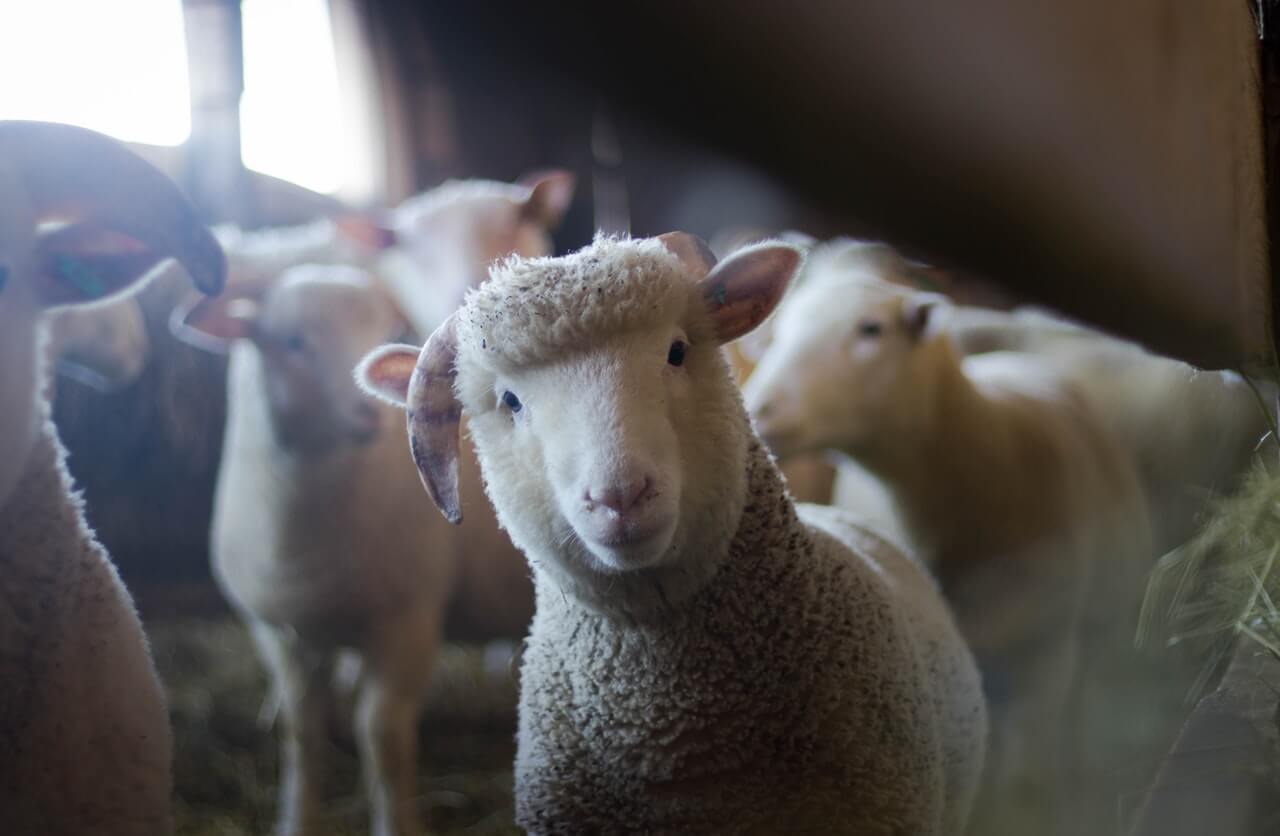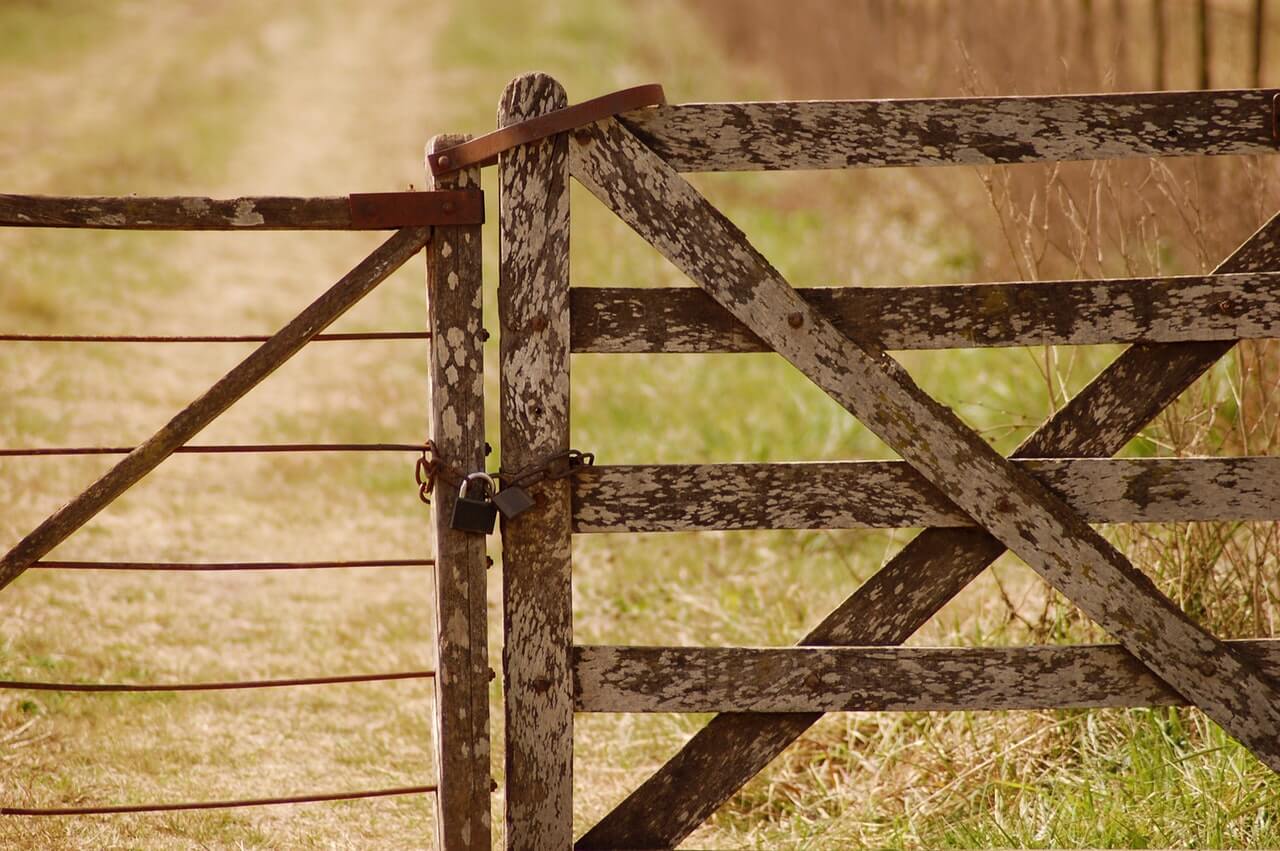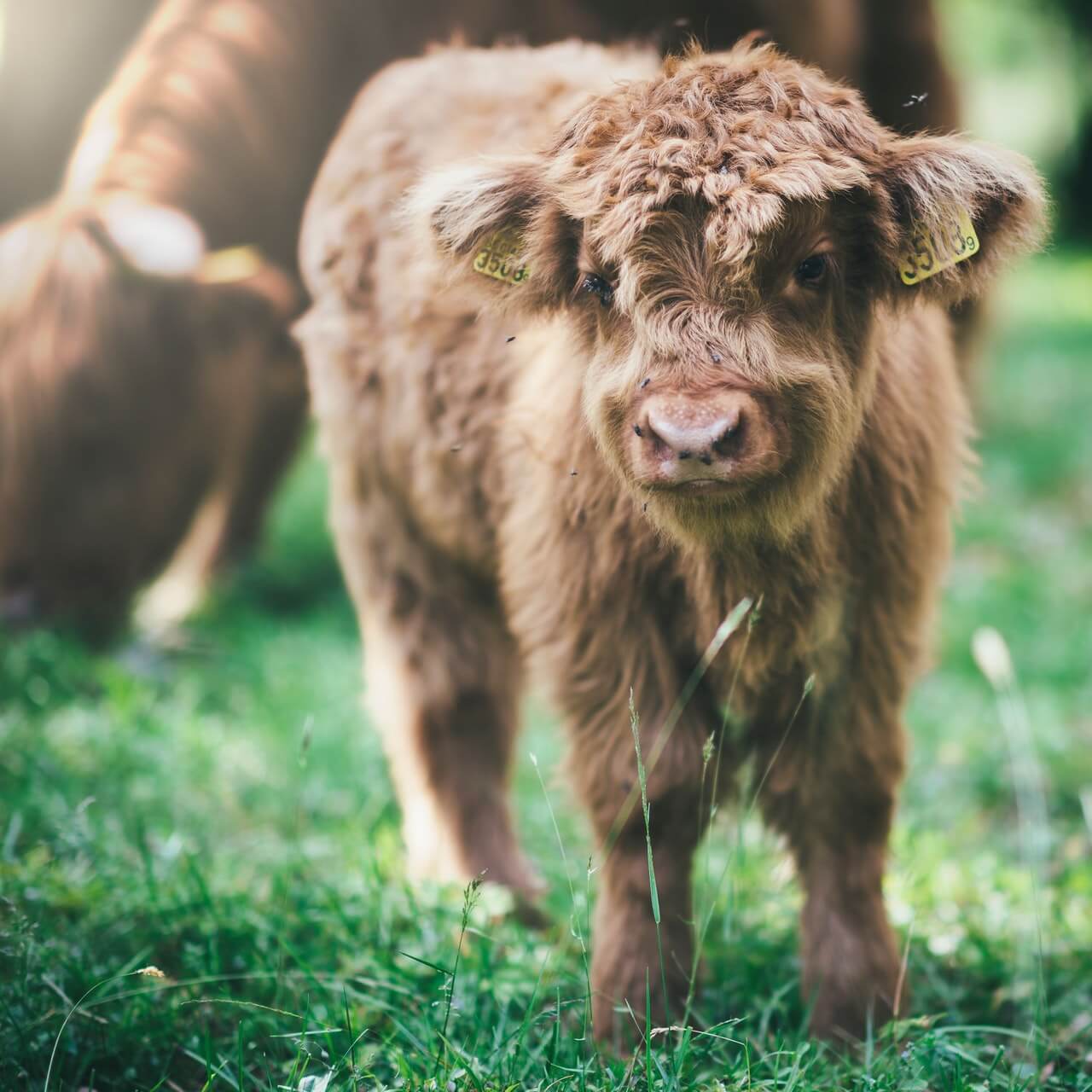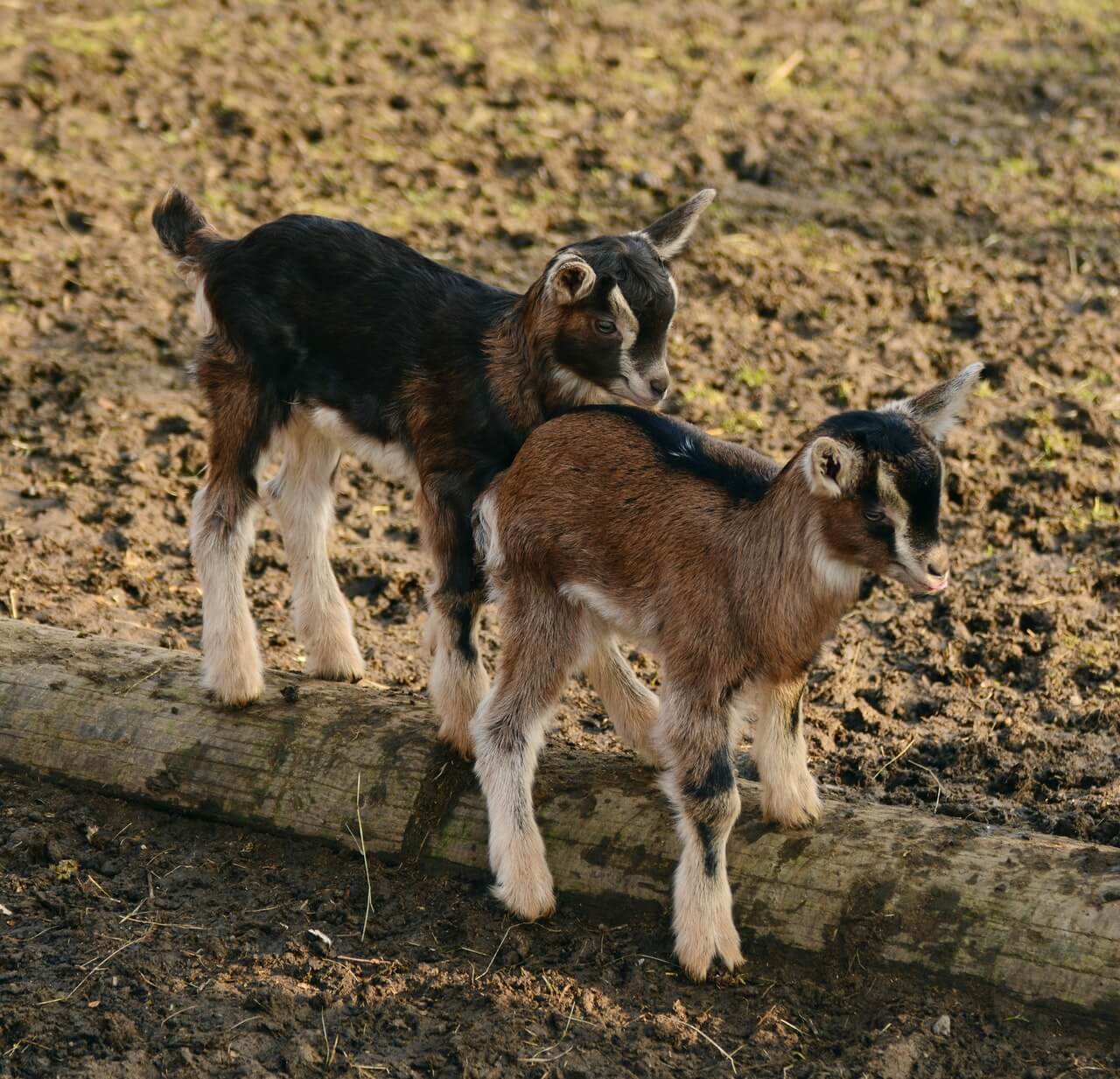
4 Livestock Species And Their Electric Fence Needs
Your livestock is an investment of time, money, and resources. Don’t let your investment go to waste with faulty fencing. JAG Products, Inc. keeps your
Your livestock is an investment of time, money, and resources. Don’t let your investment go to waste with faulty fencing. JAG Products, Inc. keeps your pastures running smoothly with innovative products that make establishing electric fencing for animals easier than ever.
Depending on the livestock in your care, you want the the fencing type that’s going to keep your animals safe from external and internal dangers. Carefully choosing your materials is absolutely critical.
Learn more about appropriate electric fencing for animals, from horses to pigs. While each type of livestock has specific needs, you can count on JAG Products, Inc to be by your side every step of the way.
With innovative products that allow you to insulate and hang electric fencing, including high-tensile wire, poly-tape, poly-rope, and barbed wire, you’ll love what we have to offer.
In this post, we outline electric fencing needs for 4 types of livestock:
Cattle are compatible with most fencing options, which means that you have more freedom of choice when deciding how to pen in your livestock. That said, there are still many mistakes to be made when it comes to cattle fencing. Perhaps the best option, though, is a well-installed and well-maintained electric fence for cows. It provides both a psychological and physical barrier that can keep cattle in and predators out.
While there are an assortment of electric fencing materials, the cheapest and most durable tends to be high-tensile wire paired with t-posts. This setup is appropriate for permanent fences in a large area and is a great way to set up rotational grazing pastures (so long as you include gates).
Cows will be safe and secure in this type of fencing. In fact, it is one of the most reliable and economical options for your cattle. The next decision that you’ll have to make is what kind of materials to shop for.
No matter which material you choose to build your electric fence for cows, you’ll need rugged, durable t-post insulator that can stand up to the wear and tear that comes with any fencing option. JAG Products, Inc. offers t-post insulators that can change direction, providing a 2 to 1 advantage over other insulators on the market, saving the consumer time and money. We offer the consumer more flexibility, reliability, and dual purpose capabilities.
When confining goats and sheep with electric fencing, you’ll encounter some unique challenges. These stubborn creatures love to test the boundaries of their confines, seeking broader horizons and fresher pasture. Ensuring that your fencing is movable, or making the investment in building rotating pastures, is of the utmost important.
Additionally, goats have a tendency to jump fences, unless they are higher than the goats are capable of leaping. Keeping them contained (and predators out) is possible with a well-built electric fence.
Typically, there are three types of fencing options appropriate for this species: high tensile wire, poly-tape/rope, and netting. JAG Products, Inc. offers high quality t-post insulators that make the installation and maintenance of these fences easier than ever.
If you choose high-tensile wire, goats typicall require 5-6 strands of conductive wire, starting low to the ground and going up four feet. This spacing helps prevents goats from squeezing under or through the wire, as well as jumping over the wire. Both steel and aluminum wires are appropriate, with t-posts and insulators placed every 8-10 feet.
If you opt for netting, you’ll want to be careful with kids and lambs. Their small heads can easily become entangled in the net. There’s danger of strangulation, along with the constant shocks they’ll be getting. If you’re dealing with babies, search for a small mesh net.
You’ll also require a charger that capable of delivering at least 4,000 volts. Some goats and most sheep possess thick coats that insulate them from the shock. If that’s the case, you may require up to 5,000 or more volts.
Horses have a way of becoming part of the family, perhaps more than any other breed of farm animal. Preventing their escape and possible injury is a major concern. Choosing electric fence for horses is an easy and efficient solution to this problem. Constructing and maintaining a strong fence will keep your horses safe, secure, and close to home.
Horses have unique needs when it comes to fencing. They are large, sturdy animals, capable of knocking down perimeters just by leaning on them too heavily. This is particularly an issue if you have expensive wooden fences. Once a horse pushes through, you’re dealing with damage repair, as well as the frustration of wrangling your four-hoofed friend.
Be aware, though, that a determined horse can still try to break through electrical fencing if under enough duress. Electric line training is only so effective if the horse is frightened.
Depending on the temperament of your particular horses, there are a few routes that you can choose when establishing an electric fence line.
We’ve gone into detail before about the differences in aluminum wires and galvanized steel wires. Either is appropriate for horses, but additional consideration must be given to thickness. Traditional wires are hard to see, which means a running horse may be taken by surprise. While that may be an issue, the positive side of that is that it breaks away easily, which presents less risk for injury if the horse does run through it.
Thicker wires won’t break as easily, which presents less of a chance for escape. If the horse becomes tangled, though, it won’t be able to get away from the charge. Thicker gauge wire carries more electricity, so it is also more appropriate for larger pasture areas.
Polyethylene coated wires are both more visible and more durable than traditional wires. The coating contains carbon, which helps conduct electricity from the inner wire to the animal touching it. It is flexible, which means that it won’t snap or tangle if your horse tries to make a break for it. The wire is often copper, which doesn’t contract and expand during periods of lower temperatures, making it appropriate for colder climates.
Whatever electric fencing solution that you choose for your horses, you need durable insulators that keep the wires live and effective. JAG Products, Inc. offers a range of insulators to fit your needs. Working both sides of the fence has never been easier with our US Patented T-post Extending Insulator.
It is the ONLY T-post extending insulator that can mount to the front or back of a standard size T-post. Our insulator does not require mechanical fasteners or zip ties. Incorrectly placed T-posts are no longer a problem!
Pigs can be some of the most difficult livestock to contain, even with the best equipment. They have a tendency to root and dig, which means that most semi-permanent fencing solutions are simply out of the question. Pig panels and wire mesh are expensive and are don’t allow for pasture rotation. If you’re seeking a semi-permanent fencing solution that is both portable is reliable, electric fences for pigs are likely your option.
Anyone who owns and raises hogs knows that they are intelligent, resourceful creatures. This can be both a positive and a negative. While they are smart enough to find ways to escape from traditional semi-permanent fencing, their intelligence also makes them easy to train.
To create the psychological barrier that electric fences bring to the table, training must be started young. Start by creating a section of electric fencing within your existing pen. By doing so, a pig that attempts to escape by running forward will still be barricaded by the existing pen. Allow the pigs to touch the live wires, teaching them the wire must not be touched.
It won’t be long before the pigs’ intelligence is working to your advantage. Their excellent memories will keep this hard-learned lesson in their mind for a long time, which means that you’ll rarely, if ever, have to deal with a hog on the run.
Pigs are compatible with charged wire, tape, or rope. The setup is very similar to that of other livestock. You’ll want well-placed posts and durable insulators that allow proper circuit completion to take place.
With pigs, the number of strands required depends on the personalities and tendencies of your pigs. For most, two strands is sufficient, placed 6” and 12” from the ground. For species that jump or are particularly aggressive, another strand between 18” and 24” is recommended.
A voltage of at least 2,000 is appropriate, but be sure to monitor your fence line for weeds, vegetation, or other impediments. These can drain the shock factor of your fencing, making it less effective.

Your livestock is an investment of time, money, and resources. Don’t let your investment go to waste with faulty fencing. JAG Products, Inc. keeps your

Establishing a durable and reliable electric fence is your best choice for keeping livestock in and predators out. Proper installation is the key. We’ve rounded

Your choices in electric fence post installation will be largely based on what critter you’re trying to contain. You’ll also want to consider your budget,

When working on ground rod installation for your electric fence setup, there are two major considerations that will determine the effectiveness: 1. How Conductive The Soil Is
Copyright © JAG Product Inc. 2022 | Website Design and Development Snowy Mountain Marketing